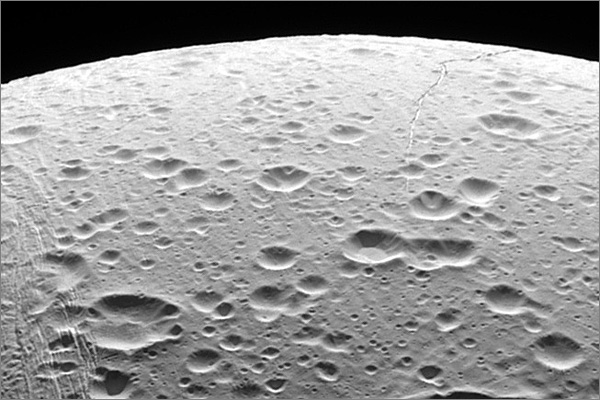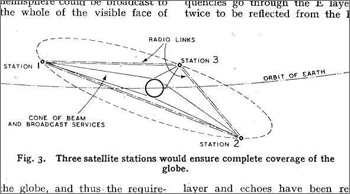
Have I been too harsh on NASA? Last week the Cassini spacecraft zoomed past Saturn’s moon Enceladus and took these magnificent pictures. Hat-tip to the Bad Astronomy Blog.

Word-whore. I write 'em. I talk 'em. Information, politics, media, and the cybers. I drink. I use bad words. All publication is a political act. All communication is propaganda. All art is pornography. All business is personal. All hail Eris! Vive les poissons rouges sauvages!

Have I been too harsh on NASA? Last week the Cassini spacecraft zoomed past Saturn’s moon Enceladus and took these magnificent pictures. Hat-tip to the Bad Astronomy Blog.
Speaking of Arthur C Clarke, how about a Lego model of Discovery, the spacecraft from 2001: A Space Odyssey? Ta for the pointer, Richard.
 Bugger. The Space Age ended today. Sir Arthur C Clarke, the grand master of science fiction, is dead at age 90. According to the BBC he died in Sri Lanka, his adopted home since 1956, from a cardio-respiratory attack.
Bugger. The Space Age ended today. Sir Arthur C Clarke, the grand master of science fiction, is dead at age 90. According to the BBC he died in Sri Lanka, his adopted home since 1956, from a cardio-respiratory attack.
Clarke is best-known, of course, for his collaboration with Stanley Kubrick on the 1966 1968 film 2001: A Space Odyssey. Even today it’s visually stunning, a grand expression of 1960s technological confidence. Even today, the ending still makes no sense whatsoever, with or without LSD.
Everyone remembers that the computer HAL 9000 went mad and killed the crew. The real lesson is that HAL went mad because his masters had told him to lie, to cover up the mission’s true purpose. This Cold War-era fable about how paranoia corrupts the mind remains completely relevant in this age of The Continual War on Terror.

What Clarke should really be remembered for, however — and what could have made him a multi-billionaire — is suggesting the use of geostationary satellites for international telecommunications.
Clarke’s 1945 paper “Extra-Terrestrial Relays — Can Rocket Stations Give Worldwide Radio Coverage?” sketched out the idea so thoroughly that it counts as “prior art” and no-one’s been able to gain patents ever since.
Apart from 33 novels, 13 short-story collections, TV programs and countless non-fiction works, Clarke was a regular letter-writer to New Scientist magazine. Sometimes he wrote about the ethics and politics of science and technology, but more often than not it was to point out that some newly-patented idea had already been described in one of his novels decades before. Not to boast, just to chuckle.
Sir Arthur is dead. The Space Age is dead.
At least the First Space Age is dead. The 1960s imperative “to boldly go” as imagined by visionaries like Clarke has congealed into a bloated, bureaucratic NASA which has, in the US at least, drained all the excitement from spaceflight.
Long live Space Age 2.0, funded not by governments asserting their fitness to rule the world, but by entrepreneurs like Sir Richard Branson and Virgin Galactic. Space will never be the same.
[A slightly different version of this story was published in Crikey today.]
Three quick movies for you to watch on a lazy Sunday… things which I’ve been sent over the last week.
The guv’mint has finally gotten up a website for the Australia 2020 Summit. The main new pieces of information are a little more about each topic area and the nomination process.
Key points:
And that’s about it, apart from a photo of Chairman Rudd. Not even an RSS feed.
Nobody gets a place in history for coming second. In October 2007 we celebrated 50 Years of The Space Age, commemorating the launch of Sputnik 1. I wrote about it, here and for Crikey (different pieces). I masturbated.
Yesterday was the 50th anniversary of America’s first successful satellite launch — and I only just realised it now.
The Bad Astronomy Blog has some of the story, and of course Wikipedia reveals all.
Apparently the US could’ve gotten something into orbit before the Commies, but they wanted to use an American rocket. The Juno 1 launch vehicle, based on German technology, was originally unsuited politically. Alas, the all-American Vanguard wasn’t up for it.